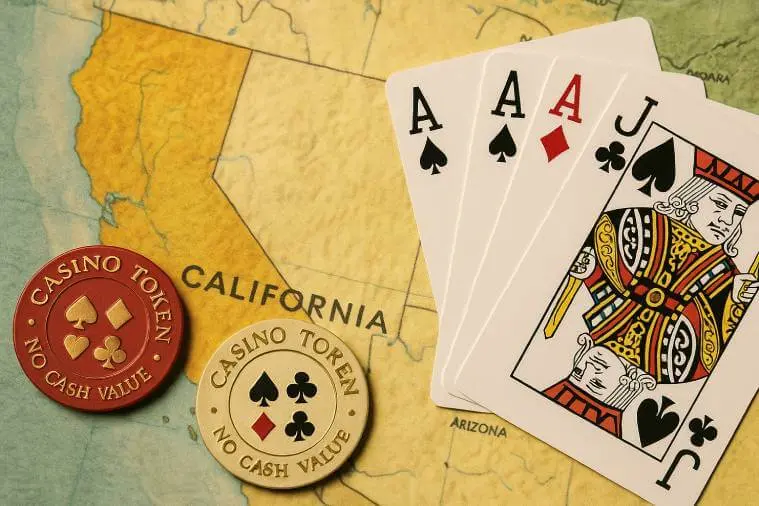California Tribes Contest Court Ruling Over Banked Games at Cardrooms


The long-standing dispute between California’s tribal casinos and non-tribal cardrooms has resurfaced in court, with tribes challenging a tentative ruling that would dismiss their lawsuit against the operation of banked games in cardrooms. The legal battle centers around the practice of using third-party proposition players (TPPs) as the bank in games like blackjack and baccarat, which the tribes argue is a violation of their exclusive rights to offer these games.
Sacramento County Superior Court Judge Lauri Damrell issued a preliminary decision siding with cardrooms, claiming that the federal Indian Gaming Regulatory Act (IGRA) preempts the case. According to the judge, IGRA, which governs gaming on tribal lands, effectively overrides state law in this matter. However, tribes dispute this interpretation, asserting that IGRA should only apply to tribal gaming and not to non-tribal cardrooms.
How SB 549 Altered the Legal Landscape
Passed in November 2023, Senate Bill 549, officially known as the Tribal Nations Access to Justice Act, created a pathway for tribes to challenge cardrooms and third-party proposition players (TPPs) over potential violations of state gaming laws. Before this bill, sovereign immunity prevented tribes from pursuing legal action in such matters.
In January, a group of tribes initiated legal action against over 90 parties, including cardrooms and TPPs, under case number 25CV000001 in Sacramento Superior Court. Complaints filed by the Rincon Band of Luiseno Mission Indians in April and the Agua Caliente Band of Cahuilla Indians in February argued that the use of a player-dealer setup by TPPs is essentially a violation of the law, akin to illegal house banking.
Rincon’s complaint stated that the TPP defendants run a bank by holding the player-dealer role in blackjack-style games offered by cardrooms. The filing argues that these TPPs only earn revenue from the winnings of the games, creating an illegal financial interest for the cardrooms involved.
Cardroom Defenses and Legal Barriers
Cardrooms, represented by Ben Horwich, argue that the tribes are bypassing the Indian Gaming Regulatory Act (IGRA) by pursuing their case outside the tribal-state compact process. They also contend that SB 549 wrongly amends Proposition 64, which requires plaintiffs to prove direct financial harm to file a lawsuit.
Cardroom representatives claim that the tribes' goal is to eliminate competition, a concern echoed in Judge Damrell’s tentative ruling. She noted that SB 549 introduces remedies that could have been part of tribal-state agreements, reinforcing her stance that IGRA governs this case.
In response, California’s Bureau of Gambling Control (BGC) has proposed new regulations to address some of the lawsuit’s issues, including changes to blackjack-style games. While these proposals have support from cardrooms, they may result in revenue losses and job cuts for the state.
The outcome of this legal battle has far-reaching consequences, as many small California cities depend on cardroom tax revenue, while tribal casinos rely on gaming income for community support.
Potential Consequences for California's Gambling Landscape
The outcome of this case could have far-reaching implications for both tribal casinos and non-tribal cardrooms. California’s gambling industry is a significant source of revenue for both tribes and local governments, with tribal casinos relying heavily on gaming income to support their communities and cardrooms contributing tax revenue to cities. The conflict over the legality of banked games and TPPs could lead to changes in the way these games are operated or regulated, depending on the final ruling.
Ongoing Legal Proceedings and Future Hearings
Judge Damrell’s ruling is still tentative, and the tribes have the option to argue for a revised decision before the case progresses further. The next hearing is scheduled for October 10, 2025, when Damrell will determine whether to issue a final ruling. If the case proceeds, it could set a new precedent for the way California handles gaming disputes between tribal and non-tribal operators.
Was this article helpful?


